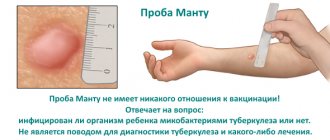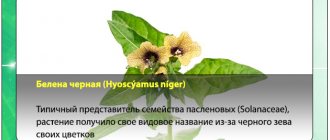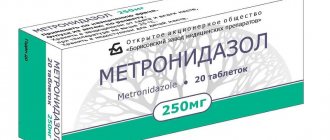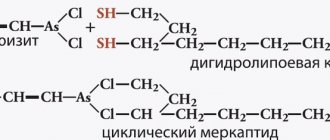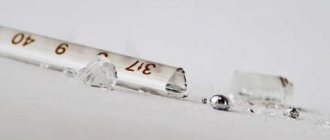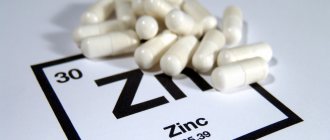What it is
Endogenous poisoning in adults and children is caused by the presence of toxic substances in the body. Under the influence of various factors, the formation of poisons occurs, causing contamination of the vascular bed. Harmful substances accumulate in the tissues and cells of organs, resulting in inflammatory processes and serious poisoning.
The spread of the toxin throughout the body occurs quite quickly. People with weakened immune systems are most susceptible to such intoxication; such poisoning rarely occurs in a healthy person.
Endogenous forms of intoxication are included in the international classification of diseases, ICD-10 code – X40-49.
Poisoning of this type is classified by type - acute, subacute and chronic. The first two are characterized by a sharp manifestation of symptoms, the chronic form is characterized by the gradual development of negative signs.
Endogenous intoxication of the body develops when a toxin enters the bloodstream or lymph.
Etiology
Factors causing intoxication syndrome are divided into internal and external.
Exogenous causes of pathology affecting the body from the outside:
- Infectious agents are pathogenic biological agents,
- Dust and gas pollution in the air,
- Salts of heavy metals - nitrites, arsenic, lead,
- Poison of insects or animals,
- Phytotoxins,
- Alcohol, nicotine, drugs,
- Stale food products,
- Hypothermia and overheating,
- Burns, injuries, frostbite.
Internal – endogenous causes of intoxication include:
- Genetically determined pathologies,
- Autoimmune inflammatory processes,
- Dystrophy of organs and tissues,
- Endocrinopathies,
- Metabolic disorders
- Oncological neoplasms,
- Immunodeficiency.
As a result of exposure to toxic substances, macrophages - immune defense cells - are destroyed, the permeability of the vascular wall increases, the structure and function of biological cell membranes are disrupted, and edema is formed. This is how inflammation and dysfunction of the affected structures develop, manifested by signs of intoxication.
Stages of endotoxin poisoning
Endogenous type poisoning includes three stages of development. Each of them manifests itself with certain symptoms and signs.
Stages:
- First. This stage of intoxication is characterized by the absence of any clear manifestations of poisoning. Appears after interventions - surgical or mechanical. When conducting diagnostics, an increased content of leukocytes in the blood is determined, which indicates the development of inflammation.
- Second. At this stage, harmful microorganisms penetrate into the bloodstream and spread throughout all organs and systems. The intoxication stage is divided into two phases. At the first stage, the manifestation of negative symptoms, decreased functionality of organs, and impaired blood supply are diagnosed. During the second phase, pathological processes and serious complications in the functioning of organs are noted in the body.
- At the third stage, destruction of internal organs is noted, and failure of many organs develops. Treatment is aimed at maintaining the necessary functions.
Therapy for the endogenous form of intoxication is treated in a hospital setting under the supervision of specialists. It is impossible to cope with such diseases on your own; there is a risk of worsening the situation.
Features of exogenous toxins
Chemicals are actively used in production and at home. The use of the funds requires compliance with a number of safety rules. Toxicology is possible through inhalation and contact with skin of various elements.
Common chemicals include:
- Toxic gases. Attention should be paid to carbon monoxide structures. The acute form of the pathological condition is a consequence of the combustion process. The volatile element affects the structure of hemoglobin, blocking the transport of oxygen to various tissues in the body.
- Salt formations from heavy metals. Dangerous poisoning options include inhalation of lead dust. A neurotoxic effect and hemolytic effect are formed. A dangerous option, mercury intoxication, can be obtained without problems at home. Careless handling of a thermometer or an energy-saving lamp leads to serious consequences.
- Detergents. Chemical reagents can cause serious complications. Hydrocarbons can cause burns of the digestive organs, gag reflexes, hepatitis, and neurological pathologies. Hallucinations may occur.
- Insecticides. They directly affect the functioning of the central nervous system, the membranes of neurons. Synthetic compounds increase the sensitivity of the myocardium and affect the course of arrhythmia.
- Cosmetics of questionable quality. The industry sector produces more than 5,000 ingredients. Poisoning occurs due to hair dyes, aerosols, conditioners, bath products, varnishes, and liquids. Symptoms of intoxication manifest differently in each person.
- Nitrates, pesticides. The acute form of exogenous intoxication with agricultural fertilizers is based on the activity of nitric acid, which affects the integrity of hemoglobin. Pesticides enter the body through the respiratory system and damaged skin.
We recommend reading
- Causes and symptoms of chronic intoxication
- Methodology for forced diuresis in case of endogenous intoxication
- First aid for morphine overdose
Chemicals can accumulate in plants. When consuming vegetables, fruits, and semi-finished products, a chronic form of intoxication occurs.
Sources of internal intoxication
Why does endogenous poisoning develop? Chronic inflammatory processes lead to the constant formation of toxic substances in the body by damaged cells. Therefore, people with such diseases are forced to take medications for a long time. The harmful compounds released provoke the appearance of an endogenous form of intoxication.
Connections:
- Metabolic products in increased volume,
- Metabolic products in increased concentrations,
- Components arising from the destruction of tissues and cells,
- Compounds arising from the oxidation of fat-soluble substances
- Increased content of elements involved in all life processes.
Diseases of the endocrine system can have an adverse effect. The formation of an increased amount of hubbub has an adverse effect on the human condition. The body's resistance decreases, which leads to inflammation and intoxication.
Video: how greens and fruits treat cancer
Cancer intoxication is a difficult ordeal for a sick person. Therefore, it is necessary to know how to relieve unpleasant symptoms and make a person’s life easier.
How to treat intoxication in oncology? First of all, it is necessary that the sick person has adequate nutrition.
The diet should contain foods high in fiber, and you should monitor the amount of protein, fats and carbohydrates. You also need to drink more clean water.
How to relieve cancer intoxication at home? As a rule, treatment almost always takes place at home. People end up in the hospital in a rather poor state. Doctors prescribe a number of specific medications that will help relieve unpleasant symptoms and alleviate the condition of intoxication.
Medicines:
- Medicines that reduce gagging, such as metoclopramide or domperidone. If a person is completely unable to take medications orally, then injections are used.
- Laxatives that restore intestinal activity.
- If necessary, use enemas.
- Various sorbents that help get rid of toxic substances.
- If a person develops iron deficiency in the body, then products containing this element are used.
- Painkillers and antipyretics.
- Medicines with a sedative effect.
- Drugs for restoring cardiac activity.
- In severe cases, hemodialysis may be used.
Unfortunately, all medications also have a certain effect on the body, but it is quite difficult to cope without them.
Another good method for relieving symptoms is, of course, a positive attitude. If a sick person is surrounded by sad and constantly crying people, then his condition will worsen. But with a positive attitude, the desire to be cured will increase.
Cancer intoxication significantly worsens the already poor state of health of the patient, whose diagnosis has an ICD code related to malignant neoplasms.
If there is no treatment for endogenous intoxication, then all the signs of the disease only intensify and this leads to death.
For the patient, various sorption drugs are added to the main treatment, the effect of which is aimed at:
- Removing toxins from the body formed during the interaction of cancer cells and internal organs.
- Correction of biochemical processes of tumor growth into internal organs.
- Absorption of produced endogenous toxins.
Typically, in clinical practice for the treatment of cancer patients, enterosorption, application sorption and hemosorption are used to eliminate signs of intoxication. Treatment for each patient is selected individually; it is also necessary to take into account those drugs that are used to treat the underlying disease.
The diet should contain foods high in fiber, and you should monitor the amount of protein, fats and carbohydrates. You also need to drink more clean water.
Causes of poisoning
Why does endogenous poisoning occur?
Often such intoxications are diagnosed after surgery. In this case, the causes of endogenous inflammation are considered to be blood loss, impaired breathing, and the influence of anesthesia. In the absence of surgical interventions, other causes of such intoxication are identified.
Why does it happen:
- Extensive burns
- Prolonged compression of tissues, trauma,
- Inflammatory process in the pancreas in the acute phase,
- The presence of peritonitis,
- Oncological tumors,
- Benign formations that synthesize hormones.
Endogenous intoxication is often diagnosed after transplantation, when the body rejects the transplanted organ.
How does exogenous intoxication occur?
Any substance can become potentially dangerous if used or stored incorrectly. Certain factors increase the risk of overdose.
Factors:
- Poor environmental situation,
- Having bad habits
- Actions aimed at suicide
- Dangerous working conditions,
- Injuries, burns,
- Failure to comply with safety regulations at home,
- Poorly manufactured or expired food products,
- Insect bites, consumption of poisonous berries or mushrooms,
- Working without protective equipment with chemicals,
- Use of low-quality household chemicals.
Carbon monoxide intoxication, which is possible in everyday life and in industry, poses a danger. Toxic compounds can enter the body in several ways.
Paths:
- Stomach and intestines,
- Nasal sinuses, nasopharynx,
- Epidermis and mucous membranes,
- Through blood - injections or drip infusion.
Exogenous intoxication provokes the development of unpleasant symptoms and disruption of normal well-being in a person.
Mechanism and clinical picture
Carrying out a thorough diagnosis made it possible to determine the mechanism of development of endogenous intoxication. There are several similar methods.
Methods:
- Productive – increased formation of toxins during acute inflammatory processes in the body.
- Resorption - penetration into the bloodstream of elements formed in individual places of tissue destruction.
- Reperfusion - the mechanism is based on the penetration of compounds resulting from prolonged ischemia.
- Retentive - occurs due to a disruption in the functionality of organs that rid the body of harmful substances.
- Infectious – a violation of the microflora of the gastrointestinal tract, as a result of which pathological bacteria produce toxins.
To establish the exact mechanism, a thorough examination is carried out. In acute manifestations of intoxication, characteristic signs and symptoms are present.
Symptoms:
- Nausea, vomiting,
- intestinal disorder,
- Painful sensations in the abdomen,
- Convulsive manifestations
- Disruption of the nervous system,
- Irritability, nervousness,
- Trembling of limbs,
- Increase or decrease in pressure,
- Increased heart rate,
- State of chills, increased sweating,
- Feverish state
- Fever.
The subacute stage is characterized by the gradual development of symptoms. Negative consequences are minimal, health remains within normal limits.
Signs:
- Slight increase in temperature
- Disorders of the digestive system,
- Pain in the head, migraines,
- Sudden changes in pressure,
- Fatigue, state of apathy, constant drowsiness.
Chronic endogenous intoxication is diagnosed most often. Develops against the background of untreated diseases, decreased activity of cleansing organs and systems. Endogenous intoxication syndrome is often determined by heliotropic liver damage, sinusitis, and gastritis.
What happens:
- Dry skin,
- Weight loss,
- Violation of heart rhythm, blood pressure,
- Constant fatigue
- Chronic headaches,
- Sudden mood changes, irritability, nervousness,
- Malfunctions of the digestive system.
- Hair loss, brittle nails, increased secretion of sebaceous glands.
In all cases, there is a decrease in immunity, allergic reactions and autoimmune reactions often occur.
Sources of endogenous toxins
Sources of toxins include diseases that cause the appearance of dangerous compounds in the body. However, useful and safe elements can become toxic compounds inside the body:
- substances that participate in the regulation of vital systems (activated enzymes);
- metabolic products at their high concentration (bilirubin);
- substances that accumulate due to improper metabolism (aldehydes);
- elements that are formed during cell breakdown resulting from tissue damage (lipase).
Endogenous intoxication: diagnosis and treatment
Before selecting the appropriate treatment, a detailed diagnosis is carried out in a medical institution.
The examination includes various procedures to determine the cause of endogenous poisoning. Examinations:
- CT scan,
- Magnetic resonance imaging,
- Ultrasound examination of internal organs,
- Taking x-rays using contrast agents,
- Electroencephalographic examinations,
- Blood tests, urine tests and others.
After determining the exact cause of intoxication, the necessary treatment is selected. If acute symptoms occur, it is necessary to call doctors and, if possible, provide first aid to the victim using detoxification drugs.
Diagnostic measures
Diagnosis of exogenous intoxications consists of determining the degree of toxic damage to the body and excluding other types of intoxications based on etiology. The set of diagnostic measures includes:
- general therapeutic examination of complaints;
- visual examination of the patient;
- collection and study of clinical history;
- general therapeutic palpation;
- auscultation of the lungs, heart rate;
- measurement of blood pressure and heart rate;
- respiratory rate measurement;
- examination of the eyes and fundus;
- determination of reflex sensitivity.
Test strips are used to determine the presence of ketone bodies in urine and psychoactive substances. First aid tactics are quickly determined, which includes the administration of medications, installation of artificial lung ventilation (ventilator), cardiac massage, installation of an air duct, and suction of mucus through a probe installed in the nasal passages. Chronic exogenous intoxication is defined in a similar way and varies depending on the nature of the development of the pathology (exacerbation, slow course).
How to treat poisoning?
Consequences and prevention
In the absence of proper treatment, a person may experience various complications and negative consequences. As a rule, the appearance of various diseases, kidney and liver failure, and blood poisoning is noted.
Endogenous poisoning will not occur if you lead a healthy lifestyle, do not have bad habits, and treat diseases in a timely manner. There are no specific preventive measures.
Endogenous intoxication can develop in any person. The reasons for this phenomenon are different. It is recommended to pay attention to diseases in a timely manner and not to delay treatment.
First aid
It is necessary to stop further contact with toxins, remove them from the body, call an ambulance and provide emergency assistance before the doctor arrives:
- In case of intoxication through the respiratory system (poisonous gases), it is important to provide a supply of fresh air. Remove from tight clothing, rinse mouth and nose, give water or warm tea, ensure rest.
- In case of oral poisoning, you need to rinse the stomach with water, give anti-poisoning agents (sorbents) to remove harmful substances from the body and water (to prevent dehydration).
- In case of intoxication through the skin or mucous membranes, the affected area is thoroughly washed with water.
- If there is no consciousness, the victim is placed on his side, breathing and pulse are monitored.
Further treatment is carried out after hospitalization in the hospital. Mild poisoning can be treated on an outpatient basis.
Video: endogenous detoxification (cleansing the body)
Read further:
Is computed tomography (CT) scanning harmful to human health?
7 best sorbents for cleansing the body: review and application
10 ways to strengthen your immune system
What is the best day to get pregnant?
How to make your nails healthy and beautiful
Article rating:
Share with friends:
You may also be interested in:
Acute occupational chronic intoxication of the body - symptoms and treatment
Lethal amount of water
Stomach hurts after poisoning - what to do, methods and methods, prevention
How long does it take for poisoning to appear in adults and children?
Non-drug adaptive treatment
Freshly squeezed carrot juice
The patient's body needs adaptive treatment, which includes changing the diet. Products should be selected in such a way as to reduce the load on a weakened digestive system. The basis of the diet is fresh fruits and baked or steamed vegetables. Food helps cleanse the intestines. Freshly squeezed juices are suitable for the patient. Protein food is needed to restore the body. We recommend low-fat fish and meat, steamed, baked or boiled.
Meals should be frequent (every 2-3 hours) up to 5-6 times a day. Portions are made small - up to 300 g. It is advisable to carry out fasting days 2-3 times a week, for which you can use fermented milk products or mineral water.
Detoxification is facilitated by baths and saunas, which can be visited several times a month. Sweating profusely helps rid the body of accumulated toxins.
Clinical symptoms of the pathology
Despite the large number of pathologies that develop with the production of endotoxins, in surgery there are general concepts of signs of poisoning. The severity of symptoms depends on the stage of intoxication.
In the acute stage of poisoning, a high concentration of harmful compounds inside the bloodstream is diagnosed. The main part of the red cells is connected by them, molecular oxygen circulates freely, its lack appears in the brain cells. This stage is characterized by the following symptoms:
- chills, cold sweat, increased sweating;
- severe disturbances of the gastrointestinal tract: vomiting, nausea, constipation or diarrhea, bloating;
- spasms localized in different parts of the body;
- hyperthermia, which is complicated by fever;
- arterial hypertension, followed by a sharp decrease in pressure to critical levels;
- tremor of the lower and upper extremities.
Read also Toxic damage to the white matter of the brain
The subacute stage appears with a slight increase in the concentration of toxic substances. All systems and organs are actively working, pathological changes are just beginning to gain strength. When examining a person, doctors identify the following symptoms of poisoning:
Indigestion, nausea, weight loss, and lack of appetite occur.- The temperature is increased to subfebrile.
- The patient is bothered by headaches that turn into migraines.
- During the day, the pressure increases sharply, and then decreases.
- A person feels dizzy, tired, apathetic, and drowsy.
The chronic stage is observed most often. It appears against the background of impaired functioning of the urinary system, untreated poisoning of various etiologies, and a decrease in the activity of the liver to remove waste. Patients experience the following symptoms:
- emotional instability: sudden changes in mood, depression, lethargy, fatigue, weakness;
- disruption of the large and small intestines, duodenum, stomach;
- dryness and pallor of the skin;
- headache that takes a chronic course;
- hypertension, hypotension or arrhythmia;
- weight loss.
Chronic intoxication negatively affects a person's appearance. Nails peel, hair falls out profusely, and rashes form on the skin. Impaired metabolism increases the production of sebaceous gland secretions.
Features of this stage of intoxication include a significant decrease in the body's resistance to viral or bacterial infections. The appearance of allergic reactions with the development of autoimmune diseases is activated.

